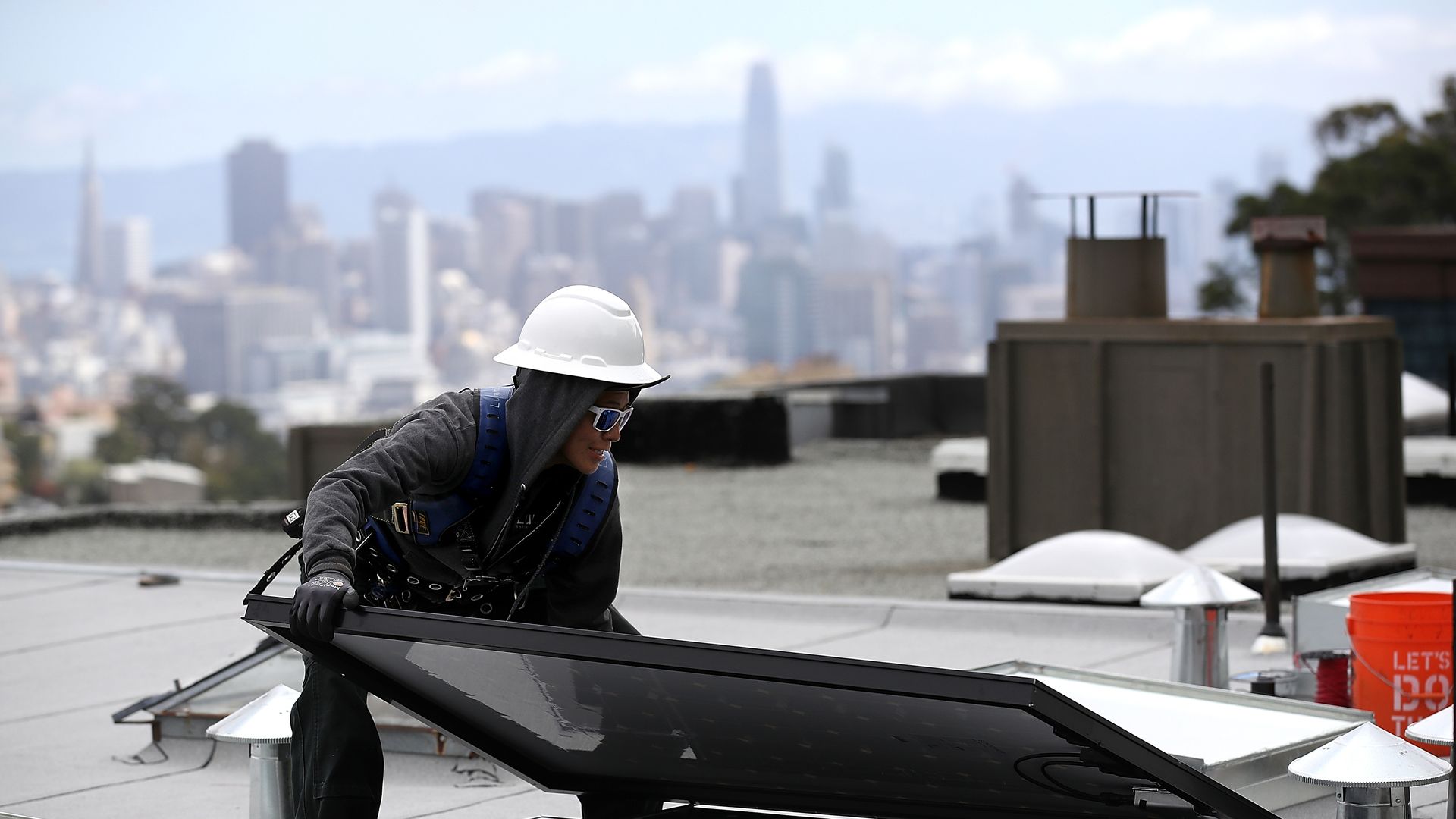Updated Jul 19, 2018 - Energy & Climate
Expert VoicesUtilities pressured to adapt as next wave of energy tech gains steam
Add Axios as your preferred source to
see more of our stories on Google.

Luminalt worker installs a solar panel on the roof of a home on May 9, 2018, in San Francisco, California. Photo: Justin Sullivan via Getty Images
